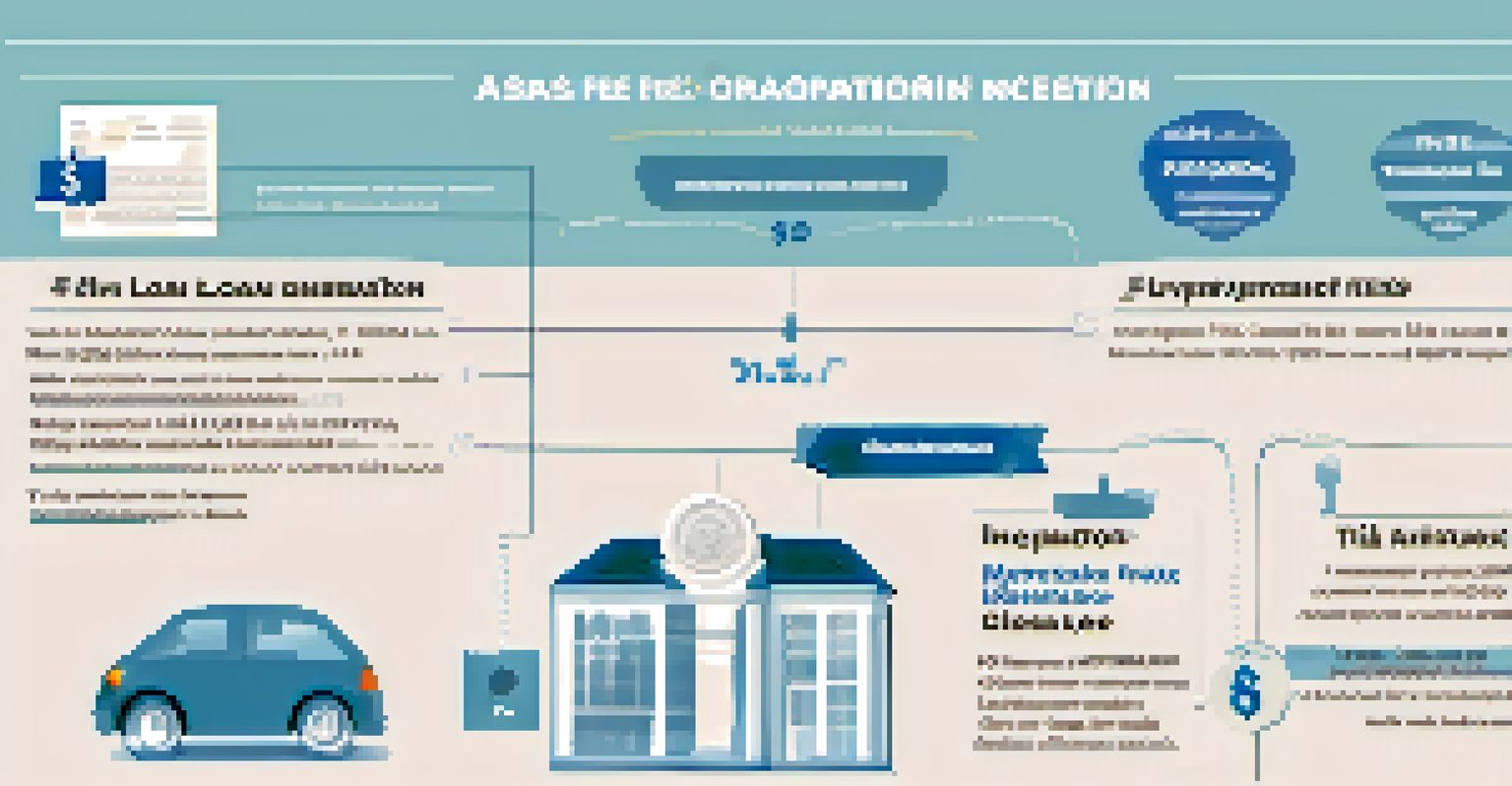Understanding Closing Costs: A Guide for Savvy Homebuyers

What Are Closing Costs and Why Do They Matter?
Closing costs are the fees and expenses you pay when finalizing your home purchase. They typically range from 2% to 5% of the loan amount, which can add up quickly. Understanding these costs is crucial, as they impact your overall budget and financial planning.
Buying a home is a journey, not a destination. Understanding the costs involved is part of that journey.
These costs can include everything from loan origination fees to title insurance, which means they’re not just a single fee but a collection of various expenses. Knowing what these costs entail helps you prepare better and avoid any nasty surprises at the closing table. Ultimately, being informed allows you to negotiate and potentially save money.
By grasping the significance of closing costs, you position yourself as a savvy buyer who knows what to expect. This knowledge empowers you to ask the right questions and make more informed decisions during the home-buying process.
Common Types of Closing Costs to Expect
When buying a home, you'll encounter various closing costs, each serving a specific purpose. Some of the most common include appraisal fees, which ensure the property value aligns with the loan amount, and inspection fees, which reveal any potential issues with the home. These costs can vary based on location and property type.

Additionally, you may face title search fees, loan processing fees, and even homeowners insurance. It's important to familiarize yourself with these costs so you can budget accordingly. Each component plays a role in securing your mortgage and protecting your investment.
Understand Closing Costs
Closing costs are essential fees incurred during a home purchase, typically ranging from 2% to 5% of the loan amount.
Understanding what these costs entail gives you the upper hand when negotiating with sellers or lenders. You might even discover opportunities to ask for concessions or reduce certain fees, ultimately helping you save money during your home purchase.
How to Estimate Your Closing Costs
Estimating closing costs can feel daunting, but it’s easier than it seems. A good starting point is to ask your lender for a Loan Estimate, which outlines all anticipated costs in detail. This document is required by law and will give you a clearer picture of what to expect.
A home is one of the most important purchases you will ever make. Be informed about all expenses, especially closing costs.
You can also use online calculators to get a ballpark figure based on your loan amount and location. These tools can provide a quick estimate, but remember that actual costs may vary. It’s wise to account for a buffer in your budget to cover any unexpected fees that might arise.
Lastly, don’t hesitate to reach out to your real estate agent for guidance. They can offer insights based on their experience and help you navigate any complexities, ensuring you feel confident in your estimates.
Negotiating Closing Costs: Is It Possible?
Yes, negotiating closing costs is not only possible, but it’s also a smart move for savvy homebuyers. Many buyers are unaware that they can negotiate specific fees, such as asking the seller to cover a portion of the closing costs, which can lighten your financial load. This can be particularly helpful in a buyer's market.
Additionally, you can negotiate with lenders over certain fees, such as origination fees or processing costs. Be prepared to shop around and compare offers from multiple lenders, as this can lead to better terms. Remember, every dollar saved on closing costs is more money in your pocket for future home expenses.
Negotiate Your Closing Costs
Homebuyers can negotiate various closing costs, potentially saving money by discussing fees with sellers and lenders.
Approaching negotiations with confidence and a clear understanding of your costs can significantly impact your overall home-buying experience. You might be surprised at how many fees can be adjusted with a bit of discussion.
The Role of Lenders in Closing Costs
Lenders play a crucial role in determining your closing costs, as they set fees associated with the mortgage process. While some fees are standard across the industry, others can vary significantly between lenders. Understanding these fees helps you make an informed choice when selecting a lender.
In many cases, lenders may offer to cover some closing costs in exchange for a slightly higher interest rate. This can be an attractive option if you’re short on cash upfront. However, it’s essential to weigh the long-term implications of this decision, as it may result in higher monthly payments.
By communicating openly with potential lenders, you can obtain a clear breakdown of their fees and ask about any potential for negotiation. This transparency allows you to find the best deal that aligns with your financial goals.
Understanding Prepaid Costs and Escrow Accounts
Prepaid costs, often included in your closing costs, are expenses you pay upfront for items like property taxes and homeowners insurance. These costs are usually collected at closing and placed into an escrow account to cover future payments. Knowing this helps you understand how these funds will be managed over time.
Escrow accounts are designed to ensure that essential payments are made on time, protecting both you and the lender. This system provides peace of mind, knowing that your property taxes and insurance are covered. However, it's essential to monitor your escrow account regularly to ensure you’re not overpaying.
Role of Lenders in Costs
Lenders influence closing costs through their fees, and understanding these can help buyers make informed decisions when choosing a lender.
Understanding prepaid costs and the function of escrow accounts enhances your overall home-buying knowledge. It provides insight into how your money will be managed, ultimately allowing for better financial planning.
Final Tips for Managing Closing Costs Effectively
Managing closing costs effectively requires a combination of preparation and vigilance. Start by creating a comprehensive budget that includes all potential closing costs. This proactive approach ensures you’re not caught off guard when it’s time to finalize your purchase.
Stay organized by keeping track of all documents and estimates related to your closing costs. Having everything in one place allows for easier comparison and negotiation. Additionally, consider setting aside a bit extra in your budget to cover any unexpected expenses that may arise.

Lastly, maintain open communication with your real estate agent and lender throughout the process. They can provide guidance and help you navigate any complexities, ensuring that you feel supported and informed as you approach closing day.